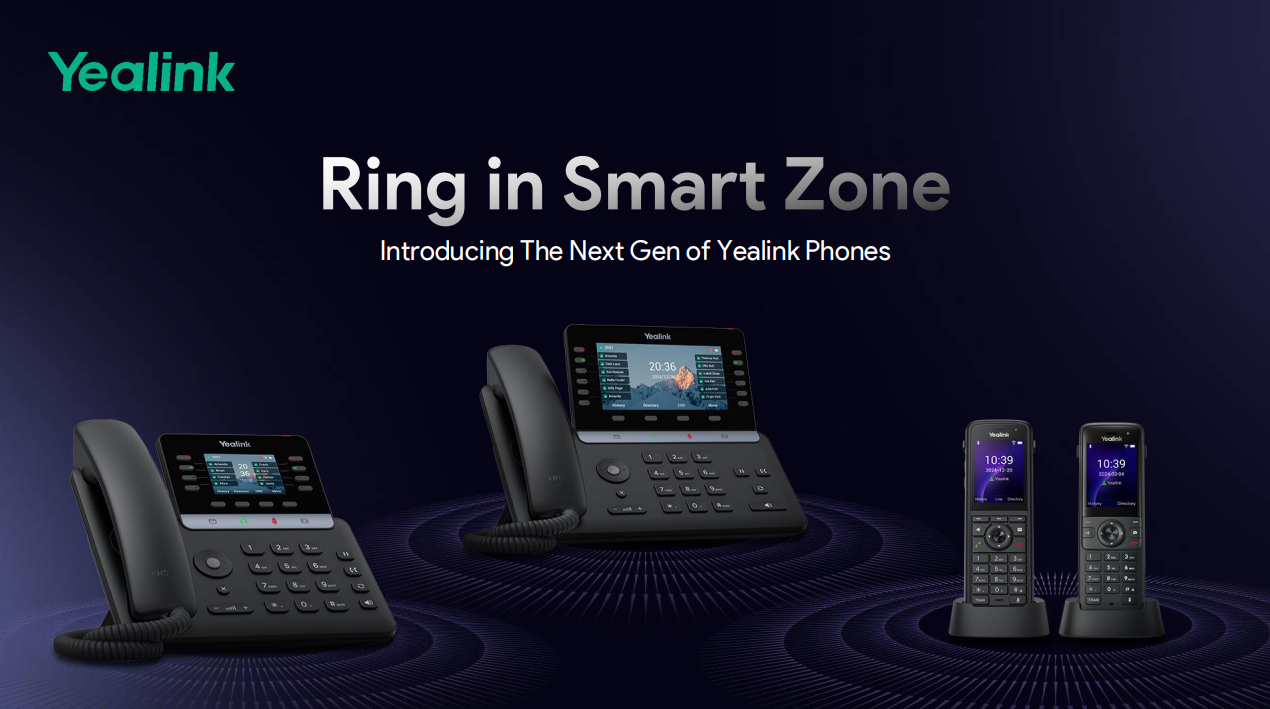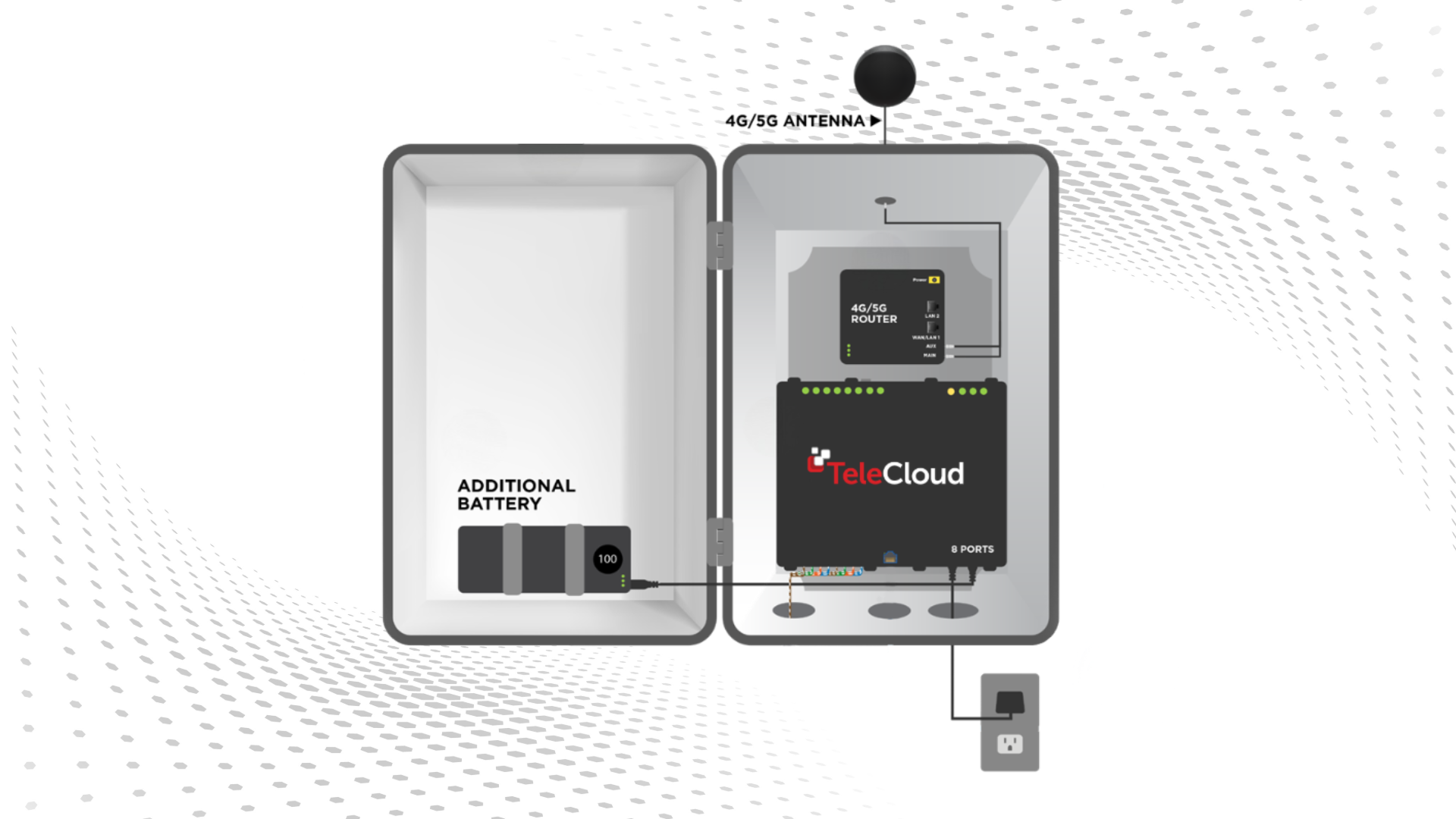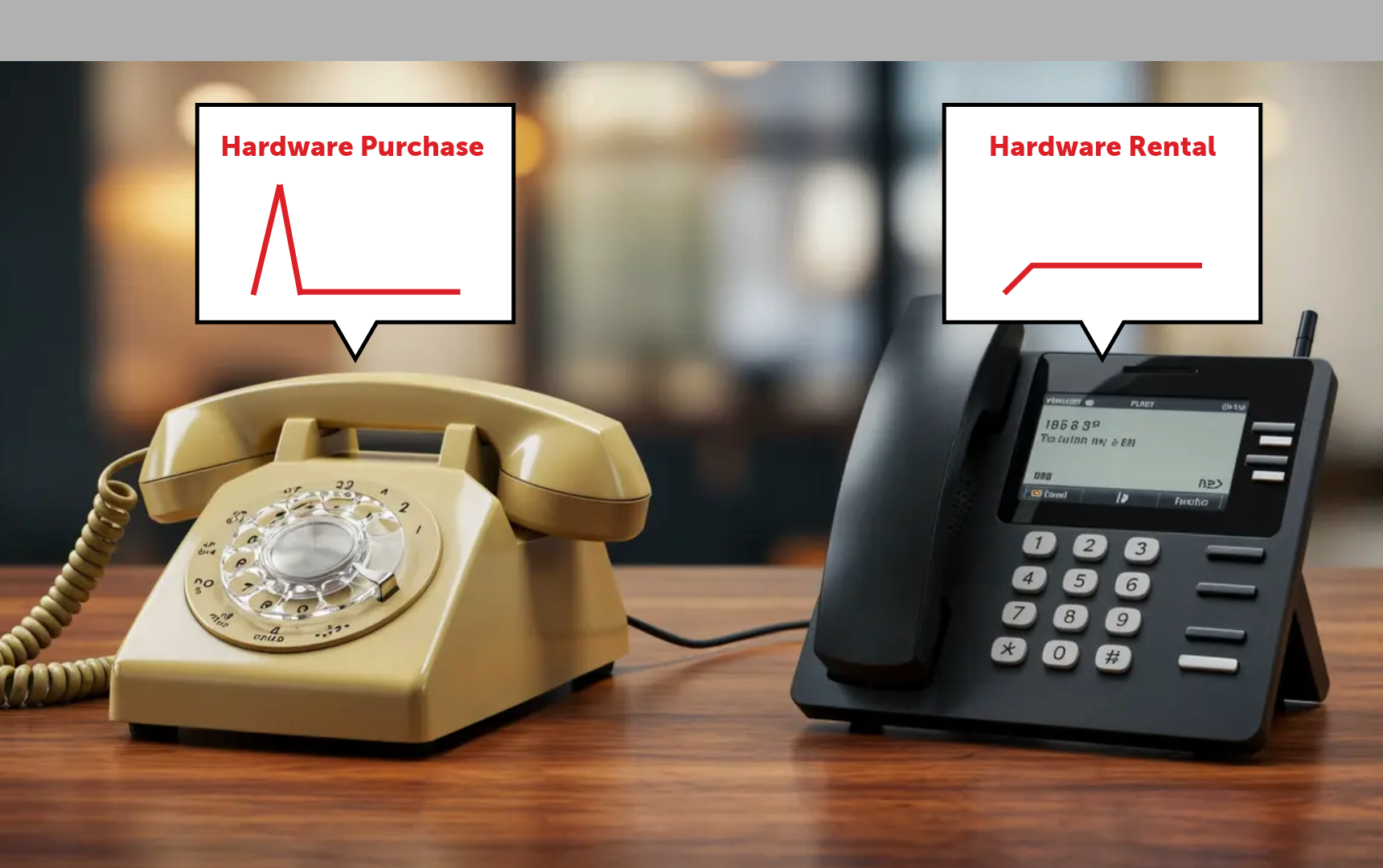Do Businesses Still Need Desk Phones in 2025? Here’s What to Know
March 26th, 2025
4 min read
By Will Maddox

The short answer? It depends on your business needs.
For some companies, desk phones provide reliability, security, and ease of use that mobile apps and web phones can’t fully replace. Others are finding that web and mobile VoIP solutions offer more flexibility, cost savings, and mobility—without the need for physical devices.
Over 70% of businesses now rely on mobile and internet-based communication tools, leaving traditional desk phones in the dust. As businesses shift toward more flexible, cloud-based solutions, the role of desk phones is evolving—leading some to wonder if they’re still necessary.
At TeleCloud, we’ve helped businesses of all sizes evaluate their telecom needs and adapt to the latest communication technologies. We understand that every business operates differently, and the right phone system depends on factors like call volume, security needs, and remote work flexibility.
In this guide, we’ll break down whether desk phones are still relevant in 2025, explore the rise of VoIP alternatives, and help you determine the best communication setup for your business.
What is a Desk Phone?
A desk phone is a physical phone device that connects through VoIP (Voice over Internet Protocol) or traditional landline services. Desk phones come in several types:
- Corded Desk Phones – Fixed devices that plug into a network or power source.
- Cordless Desk Phones (DECT Phones) – Wireless handsets that connect to a base station.
- Conference Phones – Speaker-based devices used for group calls in meeting rooms.
Unlike web phones (which run through a browser) or mobile VoIP apps (which run on smartphones), desk phones are standalone devices with dedicated hardware for call handling.
Why Some Businesses Still Use Desk Phones
Desk phones may not be as widely used as they once were, but they still provide distinct advantages:
- Reliability – A dedicated device ensures minimal software issues or battery concerns.
- High Call Quality – Desk phones prioritize voice traffic, leading to clearer audio and fewer dropped calls.
- Security & Compliance – Industries like healthcare, finance, and law often require dedicated, secure phone lines.
- Ease of Use – No software updates, permissions, or troubleshooting required—just pick up and dial.
- Scalability for Call Centers – Receptionists, customer service teams, and support centers need hard buttons for quick call transfers, queues, and hold functions.
The Rise of Webphones & Mobile VoIP Apps: Are They Replacing Desk Phones?
With businesses embracing remote and hybrid work, cloud-based communication is on the rise. Web phones and mobile VoIP apps are now common alternatives:
- Web Phones – VoIP calling systems that work directly in a web browser (Chrome, Edge).
- Mobile VoIP Apps – Business-calling apps that run on smartphones, offering SMS, voicemail transcription, and CRM integration.
Why Are Businesses Moving to Webphones & Mobile VoIP Apps?
- Mobility & Flexibility: Work from anywhere, not just at a desk.
- Cost Savings: No need to purchase and maintain physical hardware.
- Software Integrations: Connects with CRMs, collaboration tools, and analytics platforms.
- Disaster Recovery: No power? No problem—employees can keep working from mobile or web-based platforms.
Do Web Phones and Mobile Apps Have Any Drawbacks?
- Call Quality Issues: Relies on strong Wi-Fi or LTE connections.
- Software Dependencies: Requires browser and app permissions to function correctly.
- Disruptions & Distractions: On a laptop? Incoming calls might compete with emails, chats, and software updates.
Desk Phones vs. Web Phones vs. Mobile VoIP
|
Feature |
Desk Phone |
Webphone |
Mobile VoIP App |
|
Call Quality |
Best (Dedicated Device) |
Varies (Depends on Internet) |
Varies (Depends on Mobile Network) |
|
Mobility |
Fixed to One Location |
Anywhere with a Computer |
Fully Mobile |
|
Ease of Use |
No Software Updates, Just Plug & Play |
Needs Browser & Audio Setup |
Needs App Permissions & Battery Life Considerations |
|
Cost Consideration |
Requires Hardware ($100–$300 per device) |
No Extra Cost |
No Extra Cost |
|
Advanced Features |
Best for Call Queues, Paging, & Transfers |
Integrates with CRMs & Business Software |
Some Features Limited (No Call Queue Monitoring) |
|
Best For |
Office-Based Workers, Call Centers, & Receptionists |
Remote & Hybrid Teams |
Sales Teams, On-the-Go Employees |
Cost Considerations: Are Web Phones and Mobile Apps Cheaper Than Desk Phones?
A cloud-based VoIP system is often more cost-effective than traditional desk phones. Here's how they compare:
|
Cost Factor |
Desk Phones |
Web Phones & Mobile VoIP |
|
Hardware Costs |
$100–$300 per device |
No extra hardware required |
|
Monthly Fees |
$20–$50 per line |
$15–$30 per user |
|
Installation & Maintenance |
Requires IT setup & servicing |
Cloud-based, managed by provider |
|
Long-Term Savings |
Higher due to maintenance & replacements |
Lower due to flexible scaling |
For businesses with high call volumes or compliance requirements, the cost of desk phones may be justified. However, for small businesses, startups, and remote teams, mobile VoIP and web-based solutions can cut costs significantly.
What Industries Still Rely on Desk Phones?
While many industries are shifting away from desk phones, some still depend on them for reliability and security:
- Healthcare: HIPAA-compliant, dedicated phone lines for patient communication.
- Finance & Law: Secure, regulated communication channels.
- Call Centers & Customer Support: Hard buttons allow faster call transfers and queue management.
- Retail & Hospitality: Front desk operations still require fixed-line communication.
- Warehouses & Restaurants: Cordless DECT phones are used for staff communication.
- Conference Rooms: Speakerphones remain essential for in-office collaboration.
Are Desk Phones Becoming Obsolete? The Future of Business Communication
Desk phones aren’t disappearing entirely—they’re just becoming more specialized:
- Call Centers & Front Desks will still need them.
- Conference Rooms still require high-quality speakerphones.
- Industries with security regulations will maintain dedicated VoIP desk phones.
For many businesses, a hybrid approach is best—using desk phones where necessary and mobile/web solutions where flexibility is key.
Should Your Business Keep Desk Phones or Move to Webphones & Mobile VoIP?
Keep Desk Phones If:
- Your team handles high call volumes.
- You need secure, dedicated phone lines.
- Your business relies on intercom, paging, or door phone systems.
- Your internet isn’t reliable enough for VoIP.
Move to Webphones & Mobile VoIP If:
- Your team works remotely or between office & home.
- You want a lower-cost solution without extra hardware.
- Your business uses CRM integrations and cloud collaboration tools.
- You need greater mobility & flexibility.
Are Desk Phones Still Necessary?
Desk phones aren’t going extinct, but their role is changing. While webphones and mobile VoIP apps are replacing them in many industries, some businesses still need dedicated physical phones for call quality, security, and ease of use.
The best approach? Evaluate your team’s workflow, communication needs, and budget before making a decision. In many cases, a hybrid setup is the smartest way to balance reliability, flexibility, and cost-effectiveness.
Want expert guidance on the best phone system for your business? Contact TeleCloud today to explore the best VoIP setup for your team—so your business stays connected, no matter where you work.
Topics:













